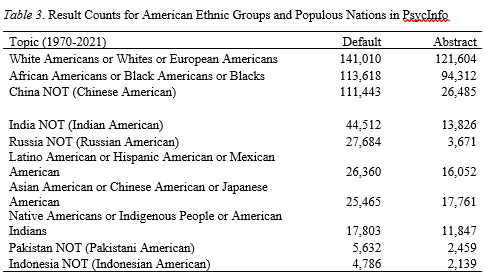Just published a commentary on @psyarxiv. The authors of the target article claimed Whites dominate psychological research on race. Their own analyses show otherwise. They also fail to account for several sociological explanations of their data. https://psyarxiv.com/zusmd ">https://psyarxiv.com/zusmd&quo...
For instance, the authors imply that White authors may be biased and choose fewer participants of color when they do research on race.
However, psychologists often use convenience sampling.
However, psychologists often use convenience sampling.
An article that originates in a place or historical era that’s 90% White it will likely have a White author and White participants. That’s because they’re sampling from their vicinity not because they’re psychologically biased.
In addition, the authors didn’t account for population base rates. Assume you learn that 80% of professors in India are Hindu. Would you say (a) the population is 80% Hindu, so that’s equal representation or (b) Hindus are dominating Indian academia?
You’d probably choose (a) -- the base rate matters. The authors don’t look at the U.S. base rates, which are very important because Americans consistently overestimate the percentage of the population that’s Black and Hispanic. https://kieranhealy.org/blog/archives/2015/04/28/guessing-the-population-composition-of-the-us/">https://kieranhealy.org/blog/arch...
For reference, the adult population (21+) of the US is 74% White inclusive of White Hispanics. Source IPUMS.
In 1980, the US adult population was 87% White and in 1970, 89.1% White. If you’re looking at data from previous decades you have to use these base rates.
In 1980, the US adult population was 87% White and in 1970, 89.1% White. If you’re looking at data from previous decades you have to use these base rates.
But the authors suggest that the number of editors of color and authors of color has gone up because editors of color favor authors of color. They don’t rule out the possibility that there are simply more people of color overall.
The authors also claim that race is neglected because “only” 5% of publications highlight race, but don’t explain why 5 is a small number here. That’s one out of 20 publications. If you look at PsycInfo counts, race seems to be one most popular topics.
And African Americans are better represented (in PsycInfo counts) than the citizens of some of the most populous countries.
I don’t think the authors’ claims hold up well under scrutiny. None of this is to say that racism and Eurocentrism aren& #39;t problems. My critique is about this specific paper alone.

 Read on Twitter
Read on Twitter




